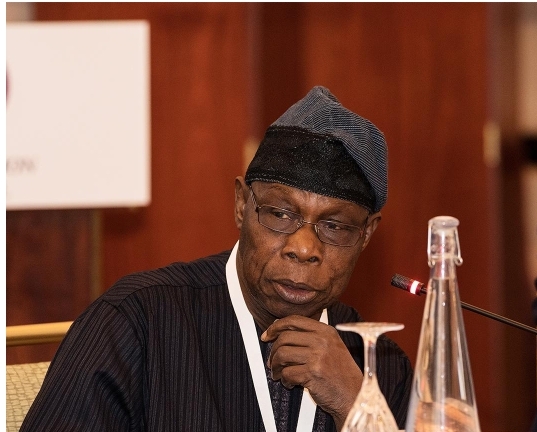Presidency send strong message to Obasanjo, says Tinubu is Taking Actions You Shied Away From 20 Years Ago
On Monday, the presidency asserted that former President Olusegun Obasanjo backed down from enacting crucial economic policies during his tenure that could have aided Nigeria in times of opposition.
Nigerian Authorities Probe National Assembly Staff Union Executives Over Alleged N3Billion Fraud
Nigerian Authorities Probe National Assembly Staff Union Executives Over Alleged N3Billion Fraud
8 mins ago
The presidency further claimed that the significant reforms Obasanjo hesitated to pursue are now being implemented by President Bola Tinubu for the nation’s benefit
In a statement from Temitope Ajayi, Senior Special Assistant to President Tinubu on Media and Publicity, the response was aimed at Obasanjo’s recent interview with News Central Television, in which he insinuated that Tinubu took office without a strategy.
Ajayi defended Tinubu’s policies, emphasizing that the current president is taking the decisive actions that Obasanjo failed to initiate twenty years ago.
Ajayi highlighted that Obasanjo’s interview has been circulating on social media, where he criticized the current administration for lacking a plan. However, Ajayi pointed out that the same “planless” president is now advancing an ambitious economic reform program that Obasanjo had proposed but later abandoned.
The discussion revolves around how both leaders addressed the contentious issue of fuel subsidy removal, a sensitive topic that has historically been avoided due to its potential to provoke unrest. The contrast between the two leaders reflects the differences in their willingness to tackle this significant issue.
Historically, Obasanjo attempted to fully deregulate the downstream oil sector but ultimately retreated due to strong opposition from labor and civil society groups. He managed only to raise pump prices four times throughout his presidency, failing to implement the reforms that could have generated substantial economic benefits for Nigeria.
In contrast, President Tinubu has shown the courage to proceed with the deregulation policy and redirect the economy to enhance public finance management. Ajayi acknowledged Obasanjo’s notable leadership while criticizing his self-perception as Nigeria’s sole savior.
The statement also referenced Obasanjo’s 2003 national address, where he expressed frustration with labor opposition to deregulation. At that time, he argued that his government’s reforms were essential for Nigeria’s economic efficiency, emphasizing a commitment to deregulation endorsed by various stakeholders, including the Nigeria Labour Congress (NLC).
The presidency noted that had Obasanjo succeeded in deregulation, Nigeria could have avoided significant economic losses and inefficiencies, which continue to affect citizens today.
In rejecting Obasanjo’s claims that Tinubu entered office unprepared, Ajayi argued that the current president recognized the urgent need to confront economic challenges directly. Unlike Obasanjo, who left critical tasks unaddressed, Tinubu has actively tackled pressing issues from day one, understanding the weight of leadership responsibilities.
Ajayi insisted that President Tinubu took office with a comprehensive plan, the “Renewed Hope 2023: Action Plan for a Better Nigeria,” which he has diligently followed since his election. The plan includes strategies for gas development and expanding infrastructure to enhance Nigeria’s competitiveness in the global market, addressing an area Obasanjo admitted he neglected during his presidency.
Furthermore, Tinubu’s agenda focuses on empowering youth through educational loans and promoting local production, which are currently being rolled out through initiatives like NELFUND and the Nigerian Consumer Credit Corporation (CrediCorp).
In conclusion, the statement emphasized that President Bola Ahmed Tinubu is undoubtedly the leader who came prepared with a clear plan to transform Nigeria across various sectors.



























